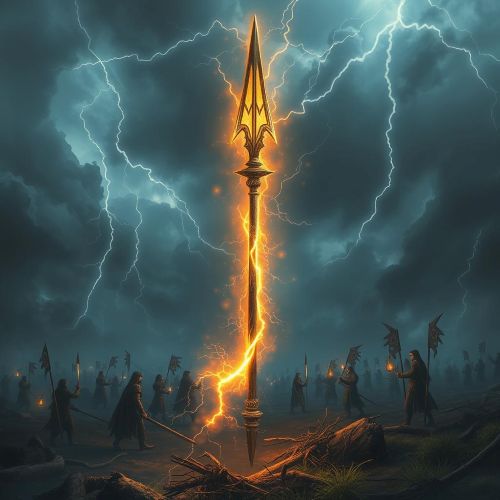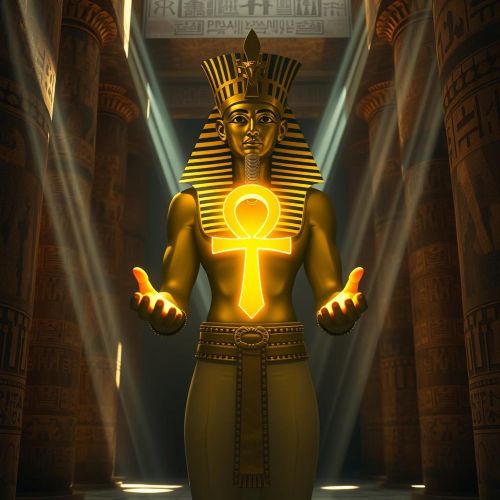Zeus and Hera in Greek Mythology: The Divine Power Couple
In the pantheon of Greek mythology, no figures stand as prominently as Zeus and Hera, the king and queen of the gods, respectively. Their story is one of power, passion, and the complexities of marriage among the divine. Let’s delve into the origins, marriage, and intriguing facts surrounding these iconic figures, whose names are synonymous with the celestial realm.
Origins of Zeus and Hera:
Zeus, the mighty ruler of Mount Olympus, was born to Cronus and Rhea, Titans who ruled the universe before the Olympian gods. Cronus, fearing a prophecy that one of his children would overthrow him, devoured each of his offspring upon birth. However, Rhea, determined to save her sixth child, Zeus, concealed him in a cave on the island of Crete, where he was raised in secret.
Hera, on the other hand, was the daughter of the Titans Cronus and Rhea, making her Zeus’s sister. She was revered as the goddess of marriage, family, and childbirth, embodying the ideals of matrimony and fidelity among mortals.
Marriage of Zeus and Hera:
The marriage between Zeus and Hera was a significant event in Greek mythology, marking the union of the king and queen of the gods. However, their relationship was far from perfect, characterized by jealousy, infidelity, and power struggles.
Hera, despite being the epitome of marital devotion, endured Zeus’s numerous affairs and dalliances with mortal women and goddesses alike. From his liaison with the goddess of wisdom, Athena, to his escapades with mortal maidens, Zeus’s infidelity was a constant source of anguish for Hera.
Despite their tumultuous relationship, Zeus and Hera shared a bond that endured through the ages. Their marriage, though fraught with challenges, symbolized the divine order of the cosmos and the intricate balance of power within the pantheon.
Facts about Zeus and Hera:
- Symbols and Attributes: Zeus was often depicted wielding a thunderbolt, symbolizing his mastery over the skies and storms. Hera, on the other hand, was associated with the peacock, symbolizing her regal nature and majesty.
- Divine Offspring: Zeus and Hera were the parents of many notable gods and goddesses in Greek mythology. Among their children were Ares, the god of war, Hephaestus, the god of fire and craftsmanship, and Hebe, the goddess of youth.
- Sacred Animals: Zeus was closely associated with the eagle, which served as his sacred animal and messenger. Hera, meanwhile, was often depicted alongside the cow, representing her role as a nurturing and maternal figure.
- Mythological Epithets: Zeus was known by many epithets, including “Father of Gods and Men,” “Cloud-Gatherer,” and “Lord of the Sky.” Hera was often referred to as “Queen of Heaven,” “Goddess of Marriage,” and “Protector of Women.”
- Cult Worship: Both Zeus and Hera were worshipped in ancient Greece through elaborate cults and religious festivals. Temples dedicated to Zeus, such as the magnificent Temple of Zeus at Olympia, were erected throughout the Greek world, while Hera was venerated at her sacred sanctuary in Argos.
- Legendary Feats: Zeus was renowned for his role in the Titanomachy, the epic battle between the Olympian gods and the Titans, which resulted in the establishment of Zeus’s dominion over the cosmos. Hera, meanwhile, played a crucial role in the Trojan War, siding with the Greeks in their conflict against the city of Troy.
In conclusion, the tale of Zeus and Hera is a captivating saga of divine power, love, and conflict. Despite their tumultuous relationship, they reigned as king and queen of the gods, shaping the destiny of mortals and immortals alike. Their legacy endures as a testament to the enduring power of Greek mythology and the eternal struggles of the human condition.
How useful was this post?
Click on a star to rate it!
Average rating 0 / 5. Vote count: 0
No votes so far! Be the first to rate this post.
We are sorry that this post was not useful for you!
Let us improve this post!
Tell us how we can improve this post?






